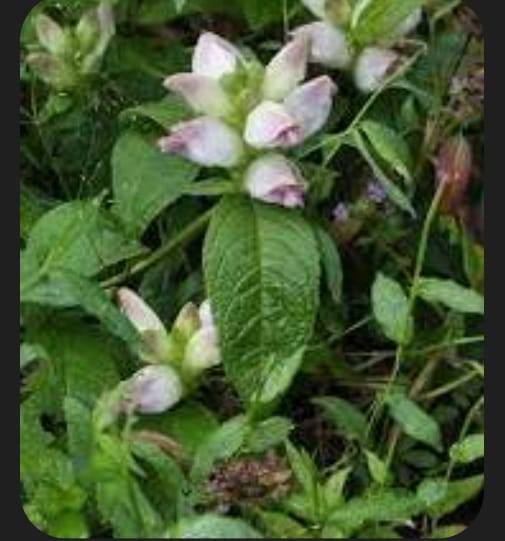Balmony, known scientifically as Chelone Glabra, is a remarkable
herb native to North America, thriving abundantly in damp soils across the
United States. This versatile plant has been celebrated for its medicinal
properties, particularly in traditional herbal medicine, where it is regarded
as a potent tonic with numerous health benefits. In Yoruba, the herb is
referred to as “Oruwo,†underscoring its recognition and usage across cultures.
A Tonic for the Liver and Digestive
System
Balmony stands out as one of nature’s finest remedies for a torpid liver.
Its efficacy lies in its ability to stimulate gastric and salivary secretions,
essential for effective digestion. This herb works wonders in cleansing the
body of morbid bile, which can accumulate due to poor liver function. By
addressing bile and fecal discharges, balmony tones the entire assimilating
system, enhancing appetite and fortifying the stomach. It is especially
beneficial in conditions such as:
Dyspepsia: Aiding in the
relief of indigestion and stomach discomfort.
Debility: Restoring strength
in cases of general weakness
Chronic Jaundice: Supporting liver
health and bile regulatio
Constipation: Promoting regular
bowel movements when combined with butternut (Juglans cinerea
Versatility in Herbal Medicine
In addition to its digestive and hepatic benefits, balmony’s properties
extend to treating other conditions:
Dropsy: When paired with
diuretics, balmony’s tonic effects help address fluid retention associated with
chronic liver and stomach inactivity.
Worms: Long heralded as a
reliable remedy for stomach worms, especially in children, balmony is a gentle
yet effective treatment. An infusion made by steeping one ounce of the herb in
a pint of boiling water can be consumed in wine-glass doses to expel parasites.
Skin and Topical Uses: For irritated and
itching piles, an ointment made from fresh balmony leaves provides soothing
relief, making it a valuable addition to natural skincare remedies.
Preparation and Administration
Balmony’s virtues are extracted effectively in water or alcohol, making
it adaptable for various preparations:
Infusion: A tea-like preparation is simple and effective for internal use.
Combination Therapy: Its effects can be enhanced by pairing with other
herbs. For example, combining balmony with butternut amplifies its laxative
effects in constipation, while pairing it with diuretics boosts its efficacy in
treating dropsical conditions.
Benefits to Mankind
Balmony exemplifies the power of herbal medicine in supporting health and
wellness. By addressing foundational issues such as poor digestion, sluggish
liver function, and intestinal health, it not only alleviates specific ailments
but also contributes to overall vitality. Its gentle yet potent nature makes it
suitable for use across all age groups, particularly in treating common
childhood issues like worms.
The herb’s utility in both internal and external applications highlights
its versatility. Whether as a tea for internal cleansing or an ointment for
soothing skin irritations, balmony demonstrates its value as a multi-functional
natural remedy. Its ability to complement other herbs further enhances its
adaptability in holistic health practices.
Conclusion
Balmony (Chelone Glabra), or “Oruwo†in Yoruba, remains an
invaluable gem in the realm of herbal medicine. Its role in liver health,
digestive wellness, and more underscores its significance as a natural tonic
and remedy. As modern medicine continues to rediscover the wisdom of
traditional practices, balmony’s benefits remind us of the profound healing
potential rooted in nature. Whether you seek to cleanse, restore, or
rejuvenate, this humble herb stands ready to deliver its time-tested virtues.
Written by Taiwo Owoeye



Bukola
Jan 5, 2025Thanks for the knowledge